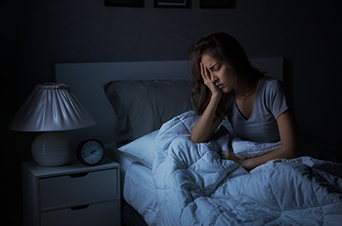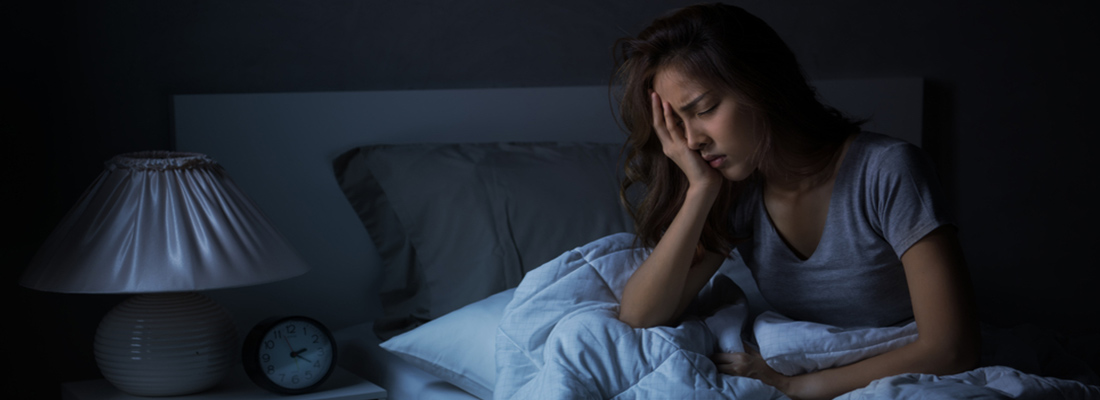Introduction
Insomnia is a sleep-related disorder and a complex condition that can affect your peaceful nights. You might wonder if is insomnia hereditary. Is insomnia genetic? Well, the answer to this lies in detail in this guide. However, to answer these questions in brief, it can be a no and a yes as well. Let’s explore these possibilities in detail.
Let’s Observe Some Statistics of Insomnia First
According to the Centers for Disease and Prevention (CDC), adults need a good round of 7-hour sleep. However, 1 in 3 Americans do not get the required amount of sleep. Although ignoring the recommended hours feels normal, it affects your normal ability to function. Moreover, it may lead to other health problems.
Additionally, 75% of adults face the symptoms of insomnia, while 20% of preteens have this issue.
Furthermore, talking about statistics for types of insomnia, for chronic insomnia,1 in 10 people are likely to develop them. Moreover, acute insomnia may be seen in 30-50% of adults at some point in their lives.
Do You Know What is Insomnia?
Let’s get some details about what insomnia is. Then we will head onto the major question: is insomnia hereditary?
Insomnia, which is sometimes ignored as a typical sleep problem, is a complicated illness that extends beyond simple nighttime restlessness. Its common effects affect cerebral clarity, emotional well-being, and physical health during the day. Insomnia, defined as a persistent problem falling or staying asleep, can showcase itself in a variety of ways, ranging from acute, short-term bouts to chronic, long-term fights with sleeplessness.
Insomnia effects are immense on individuals. The immediate consequences include fatigue, irritation, reduced cognitive function, and a weakened immune system. Beyond these obvious impacts, however, there are deeper concerns: increased risk of depression and anxiety disorders, cardiovascular difficulties, and decreased quality of life.
Is Insomnia Hereditary-Sneak Into Types of Insomnia First
Before gaining insights into the basic question: is insomnia hereditary, let’s observe the types of insomnia first.
- Primary insomnia: It means that your sleep issues are unrelated to any other health condition or issue.
- Secondary insomnia: occurs when you have difficulty sleeping due to a medical condition (such as asthma, depression, arthritis, cancer, or heartburn), pain, medicine, or drug abuse (such as alcohol).
Want to know about daytime sleepiness? Our blog will help you discover what your feelings are and how to treat them.
Additionally, there are some more of the less common types of insomnia as detailed below:
- Sleep-onset insomnia: This means you have difficulty falling asleep.
- Sleep-maintenance insomnia: occurs when you have difficulty falling asleep or waking up too early.
- Mixed insomnia: In this type of insomnia, you have difficulty falling asleep as well as staying asleep throughout the night.
- Paradoxical insomnia: occurs when you underestimate the amount of time you spend sleeping. It appears that you sleep far less than you do.
Getting to Know: Is Insomnia Hereditary? Is Insomnia Genetic?
To answer the question: is insomnia hereditary, or is insomnia genetic; we have mentioned earlier that the answer is a yes and a no. Let us explain why.
Insomnia is a complicated situation. Research shows that genetics can be a contributing factor and not as well. In simple words, some researchers support genetics be a contributing factor while further research needs to be done to negate this finding. in addition to genetics, a number of other factors are responsible for causing insomnia. Therefore, we can say, a combination of personal, environmental, and generic factors is responsible for causing insomnia.
Additionally, the research is in favor of genetics as a likely contributing factor for insomnia. The contribution of genetics ranges from 22-59% in adults, with the average standing at 39%.
So, the answer to this question; is insomnia hereditary, lies close to yes.
Before moving on, have you heard the term sleep apnea? Find out more about it by clicking here.
Identifying Risk Factors and Genetic Predisposition
We have deciphered that genetics are a major cause of insomnia. Let’s see in detail which genes are responsible and what the associated risk factors are.
As the process of sleep is complicated, so is the reason behind it. However, some scientists have plunged to find the underlying reasons.
A 2019 study, one of the largest to date on the subject, discovered 57 gene regions associated with insomnia symptoms.
Surprisingly, these areas were not associated with sleep regulation but with a mechanism known as ubiquitin-mediated proteolysis, which kills specific proteins.
Additionally, in other research, scientists identified neuronal excitability in the patient’s body. these were associated with overacting areas in the body promoting awakening. There are chances that these might be leading to insomnia and may be a contributing factor.
Is Insomnia Genetic-What are the Tests for Genetics?
If your doctor believes that your genes are to blame for your sleeplessness, you may wish to undertake genetic testing. Doctors generally do not do genetic testing in a clinical environment, unless you have FFI.
Once your doctor has given you a diagnosis, you can either join a research study or look for consumer companies that offer DNA testing. Keep in mind that even if genetic testing confirms that you have gene mutations that cause insomnia, your treatment plan will not alter.
Scientists are still a long way from using genetic information in insomnia prevention and treatment strategies.
Is Insomnia Hereditary, or Environmental Factors Can Contribute As Well?
Yes, environmental factors can contribute to the sleepless condition. As we know, environmental factors can affect the expression of genes. Therefore, they are a contributing factor in causing sleeplessness.
Stress, diet, climate, and even your social life, for example, can all alter the way certain genes work, and hence your sleep.
Symptoms of Insomnia
To check whether you have insomnia or not, find one or more of these symptoms to see a doctor:
- find it difficult to sleep
- wake up several times during the night
- lie awake at night
- wake up early and am unable to return to sleep still feel tired after waking up
- find it difficult to nap during the day even though you’re tired
- find it difficult to concentrate during the day because you’re tired
Diagnosis of Insomnia
Consult your doctor if not getting enough sleep interferes with your everyday activities. The diagnosis can be insomnia if you have difficulties sleeping or staying asleep at least three evenings a week. Chronic (long-term) insomnia occurs three or more evenings per week and lasts three months or longer. Your doctor may order additional testing to determine whether your insomnia is creating any other health issues.
Before seeing your doctor, you should keep a sleep journal for 1 to 2 weeks. A sleep diary might assist your doctor in understanding your sleep issues and whether particular activities are interfering with your sleep.
If the Query: Is Insomnia Hereditary Affirmative, Then How to Treat Genetic Insomnia?
Identifying and Addressing Underlying Problems:
There is evidence that there might be underlying causes in addition to genetic factors. Genes may not completely be the reason for your sleepless conditions. Therefore, identifying and addressing the correct underlying situation is optimal for guiding the correct prognosis.
Implement Cognitive Behavioral Therapy for Insomnia:
As compared to medications, CBT-I techniques have proved much more efficient in treating insomnia.
CBT-I includes several strategies that a medical professional may propose based on the severity of your ailment and other personal considerations.
- Sleep education teaches patients about good sleeping and lifestyle behaviors that might help them sleep better.
- Sleep hygiene — patients learn how to enhance their sleep hygiene (for example, a regular sleep pattern, a pleasant room temperature, and comfy bedding).
- Stimulus control – patients learn which strategies to take to reduce their anxiety about sleeplessness (worrying can create sleep issues).
- Relaxation practices can assist a person with insomnia calm their mind and body.
- Sleep restriction entails ensuring that the user exclusively utilizes the bed for sleeping.
Taking Medications:
Medications may work in parallel to CBT-I techniques. Some effective medications include Benzodiazepines (BZD), Nonbenzodiazepines, melatonin agonists, Doxepin, Barbiturates, etc.
Conclusion
To conclude, this blog answers major sleep-related query: is insomnia hereditary? Is insomnia genetic? The answer lies not exactly yes or no but somewhere close to yes. It implies that genetics are a significant contributor to insomnia.
However, many underlying causes can contribute to sleepless conditions. Therefore, correct and timely diagnosis is crucial for treating or managing insomnia. What’s the next step? The next step is to identify a reliable sleep center that can help rejuvenate your sleepless nights and make your days better. Our Home Sleep Center is the most reliable option for you. In addition to gaining the best provider services, you can gain home sleep testing services as well. Moreover, you can get tested for your sleep-related issues from the comfort of your home. Our telemedicine services offer you a reliable and convenient option to ward off sleepless nights and rejuvenate your peaceful days.


